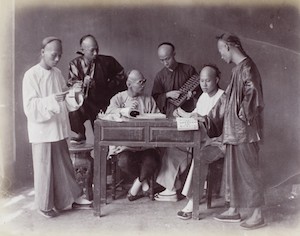The comprador classes of the 19th- and early 20th-centuries were critical agents of global capitalism. As “middle men” in the colonial enterprise, they enabled the development of imperial trade networks, negotiated the supply of labor that extracted profit from the local landscape, established new patterns of consumption and taste, and facilitated cultural as well as economic exchanges that were critical to the growth of Asian cities. In diverse treaty ports and colonial entrepôts like Singapore, Batavia, Shanghai, and Hong Kong, compradors drew on a diverse vocabulary of intra- and trans-regional architectural forms, labor, materials, and construction techniques to build homes, offices, godowns, factories, and infrastructural networks that were legible to both European corporations and local populations. The travelling, sojourning perspective of the comprador allows historians to critically examine the fractured, multi-scaled geographies at play across global networks as well as what Raymond Williams has described as “the metropolitan interpretation of its own processes as universals.” The articles in this collection create an understanding of treaty ports and colonial cities not only as sites of local and foreign interactions but as incubators of new ideas about architecture and modernity in the global capitalist economy.
Editorial
Research Article
Collections
-
The Two Mediterraneans that Live Apart, Together: Making Architectures and Writing Histories
Women’s display. Women’s exhibitions and exhibition design in the 20th century
Building Civic Identities. Communal Palaces in Italian Urban History (14th-17th Centuries)
Intersecting Practices: Architecture and the Visual Arts in Early Modern Europe - Italy and the Netherlands
The Geopolitical Aesthetic of Postmodernism
Architects as Global Entrepreneurs (1850-2000)
From Ration Cards to Refugee Camps: Architecture, Bureaucracy, and the Global State of Emergency during World War One
Comprador Networks and Comparative Modernities
Architectural Historiography and Fourth Wave Feminism
Marxism and Architectural Theory across the East-West Divide
Resilience in Architectural History
On Style
On the meaning of 'Europe' for Architectural History
Travel
Building Word Image: Printing Architecture 1800-1950
Objects of Belief: Proportional Systems in the History of Architecture
Culture of Crisis
